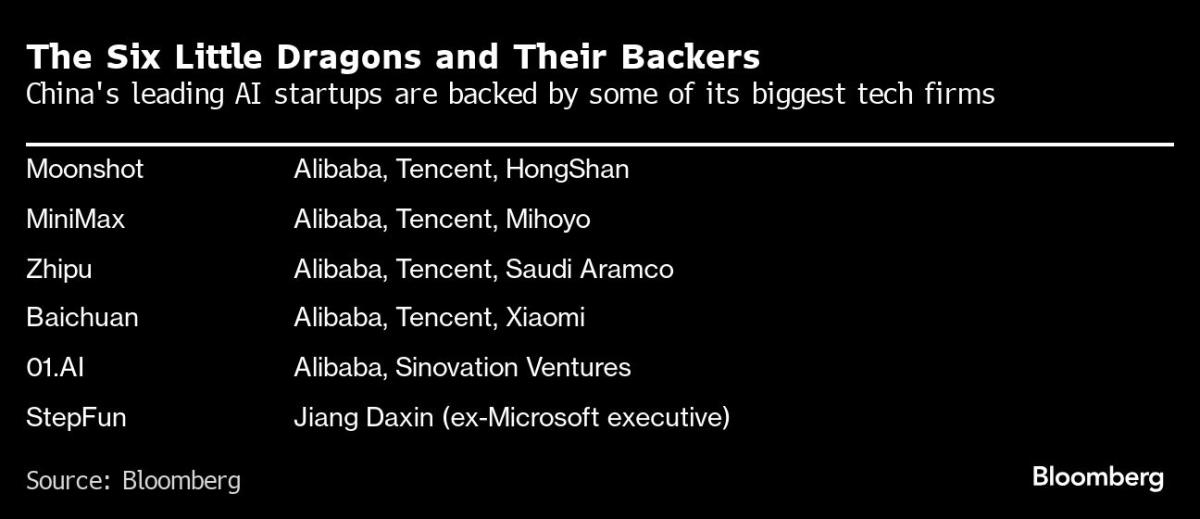Bussiness
Alibaba’s Marquee Business Shrinks Amid Consumer Malaise

(Bloomberg) — Alibaba Group Holding Ltd. posted an anemic 4% rise in revenue after its Chinese commerce business shrank for the first time in at least a year, driving home the malaise plaguing the world’s No. 2 economy and its leading online retailer.
Most Read from Bloomberg
The company’s profit plunged 27%, dispelling hopes of a quick turnaround at the company that pioneered Chinese e-commerce two decades ago. Alibaba’s American depositary receipts dropped at the start of trading in New York before rising about 2% with a broad market rally.
Chief Executive Officer Eddie Wu is spearheading an overhaul at a conglomerate that since the big tech crackdown of 2020 has struggled to consistently deliver on growth and innovation. Wu, who replaced Daniel Zhang at the helm about a year ago, is focused on enhancing its twin businesses of commerce and cloud computing, while making bets on AI technology for the longer term.
Investors worry that Alibaba’s drive to win market share back from Temu-owner PDD Holdings Inc. and JD.com in China will compress margins. The company’s operating margin fell to 15% in the most recent quarter from 18% a year earlier.
In the three years before its report Thursday, the company has posted a loss or decline in net income for the majority of its quarterly results. Last week, PDD founder Colin Huang became China’s richest man, a potent symbol of his company’s ascent at Alibaba’s expense.
Click here for a live blog on Alibaba’s numbers.
Executives including Wu on Thursday reassured investors profitability is still a top priority, as they seek to make most of Alibaba’s units break even within one to two years.
“Competition will remain a key issue for Alibaba,” said Shawn Yang, an analyst at Arete Research. “Some investors may have high hopes for the increase of Alibaba’s take rate, as it began testing a new advertising tool this past quarter. But the actual numbers we are seeing in the results shows it may take longer for that effort to pay off.”
Compounding its issues is the uncertainty shrouding the world’s No. 2 economy. Data released Thursday showed China’s economy failed to pick up after its worst stretch in five quarters, as domestic demand falters under a prolonged housing downturn. On Wednesday, bigger rival Tencent Holdings Ltd. posted better-than-anticipated earnings but warned that flagging consumption was hitting the giant fintech and cloud division that houses its payments and lending businesses.
Alibaba reported revenue of 243.2 billion yuan ($34 billion) in the June quarter, versus the average projection for about 249.9 billion yuan. Revenue from Taobao and Tmall — Alibaba’s core platforms — dropped a surprise 1%.
Alibaba ADRs Fall After Revenue Miss Disappoints: Street Wrap
Net income fell about 27% to 24.3 billion yuan, reflecting the heavy cost of attracting and retaining shoppers. Adjusted earnings — closely watched metric by many analysts — beat expectations. In contrast, smaller rival JD.com Inc. reported results that beat expectations, though sales climbed just 1.2%.
Still, the three-way battle raging in China’s e-commerce arena shows signs of intensifying. Alibaba and its rivals PDD and JD pulled out the stops during the annual “618” shopping festival, using deep discounts and A-list celebrities to try and move products from cosmetics to cake. Alibaba promised billions in cash rewards and experimented with novel approaches such as a streaming section exclusively for company CEOs.
Overseas, Alibaba’s Singapore-based Lazada arm is fighting a resurgent Sea Ltd. and even ByteDance Ltd., which recently expanded its footprint in Asia by swallowing Indonesia’s Tokopedia. Alibaba’s international division remains one of the fastest-growing businesses, growing 32% in the quarter. But analysts say losses there will persist.
To counter the market gloom, Alibaba has stepped up share repurchases — most recently tacking on $25 billion to an already record buyback program for the company.
What Bloomberg Intelligence Says
Alibaba’s fiscal 1Q Taobao-Tmall revenue decline of 1.4% year-over-year vs. JD.com’s retail gain of 1.5% raises concerns about its abilities to monetize new online efforts such as live-streaming in China. This potential weakness may offset the upside to the firm’s fiscal 2025 outlook from a narrower-than-expected overseas e-commerce loss and strong cloud margin upticks in 1Q.
– Catherine Lim and Robert Lea, analysts
Click here for the research.
As with Tencent, the economic downturn is likely to suppress Alibaba’s once fast-growing cloud business, which hosts computing for corporate clients. After years of driving growth across its businesses, the division has managed only single-digit percentage growth in recent quarters as state-backed rivals such as China Telecom Corp. and the likes of Huawei Technologies Co. stepped up.
In response, the company is aggressively cutting prices — slashing prices by as much as 55% on more than 100 services in March, triggering a round of industry discounting. Cloud revenue grew about 6%, while the division’s adjusted earnings more than doubled.
What Bloomberg Intelligence Says
The revenue pick-up in Alibaba’s Cloud Intelligence division during calendar 2Q24 – though anticipated – might not be sustainable, given rising corporate uncertainty and the ongoing price wars in China’s Cloud and Gen-AI sectors. We expect Tencent, Baidu and Alibaba to continue to lose cloud market share to Huawei and the State Telcos through 2024. Rising AI demand, seasonal effects and pre-Olympics contracts boosted Alibaba’s top-line Cloud growth to 6% in the quarter, up from 3% the prior period.
– Robert Lea and Catherine Lim, analysts
Click here for the research.
Both Alibaba and Tencent have invested in the majority of China’s up-and-coming generative AI startups, fueling a costly battle that could in turn bolster their cloud sales thanks to growing appetite for AI training and inferencing.
AI products will help cloud revenue from external clients return to double-digit growth later this year, executives said, adding such demand isn’t hampered by Chinese economic risk because corporations need to integrate the technology.
–With assistance from Vlad Savov, Yazhou Sun, Peter Elstrom, Henry Ren and Edwin Chan.
(Updates with share move in the second paragraph.)
Most Read from Bloomberg Businessweek
©2024 Bloomberg L.P.









